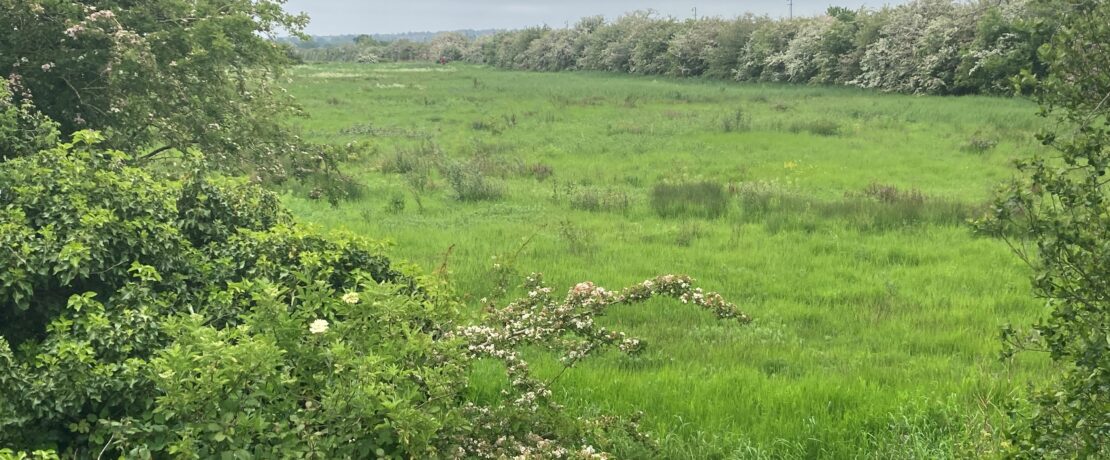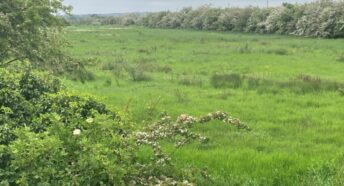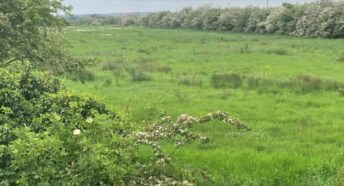Minster Marshes: fighting the fight against the devastation of Sea Link
Natural beauty overshadowed by the looming devastation of National Grid’s proposals
It was a bittersweet moment for two members of the CPRE Kent team as they joined local campaigner George Cooper on a tour of the swathe of Minster Marshes threatened by National Grid’s Sea Link project.
Sweet because it was so uplifting to see the amount of wildlife habitat – complete with wildlife! – that had been created on-site but bitter due to the scale of the proposed destruction.
In just a couple of hours we saw marsh harriers, sparrowhawks, kestrels and a peregrine, along with large numbers of redwings and finches, all in around the flashes, hedgerows and scrub that prove such a draw to birds and so much other wildlife.
Bitter because the spectacle was overshadowed by the looming devastation of National Grid’s proposals, which entail the development of an underwater electricity link between Suffolk and Kent with onshore converter stations at either end (Minster, in Kent’s case).
There has been little recent news to report, but it is timely to give an update on where we are…
The third round of consultation on the scheme ended in August, but the fight to save the marshes at Minster and Pegwell Bay from the ravages of such an environmentally damaging proposal has been kept in the spotlight with public meetings and an impressive social-media effort.
CPRE Kent’s own Peter Lorenzo, chairman of our Thanet district committee, chairs the Save Minster Marshes group, which has set up a range of meetings highlighting quite how damaging the Sea Link proposals are.
The project document says the link would make landfall in Kent at Pegwell Bay, part of Pegwell and Sandwich Bay National Nature Reserve, where saltmarsh habitat has still, after some five years, not recovered satisfactorily from the placing of Nemo Link cabling through the site.
The NNR is one of the county’s most valuable sites for wildlife and, among a range of other things, CPRE Kent wants to see evidence that NG has properly ruled out less environmentally damaging options, including the use of suitable brownfield sites, and that the cumulative effects assessment is undertaken robustly.
Save Minster Marshes has engaged a barrister through the English Law Foundation on a pro bono basis and met him to discuss the group’s options going forward.
- To learn more about Sea Link, click here









